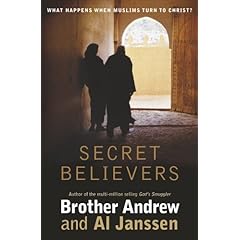Gospel partnership
Life as a UCCF staff worker means that you meet a whole lot of different people in a whole lot of different places.
This week has been no exception. Yesterday at Myerscough College, we had the first of the Glad You Asked lunchtime discussions - all but one of the students were FE-based, 16-years old, and doing either horticulture or landscape gardening. At the other end of the spectrum, today I had a very productive meeting in his palace with the Bishop of Carlisle, Graham Dow, regarding the possibility of appointing a Cumbria staff worker from next summer.
Particularly, I've been struck by how wonderful it is to stand with other Christians from many walks of life as we seek to proclaim the gospel on campus. So far this week I've been partnered in my own ministry by Ruth (my team leader), Zac (my team mate), Sarah and Nick (Relay Workers), Marcus and Edd (from a local church in Lancaster), Don and Steve (wonderful chaplaincy volunteers at Myerscough), Bishop Graham ... and a whole bunch of students on several university campuses. I've been struck again by how God calls each Christian to use their gifts to build up the body. It's a privilege to be part of what God is doing in his world as each one uses their gifts.



